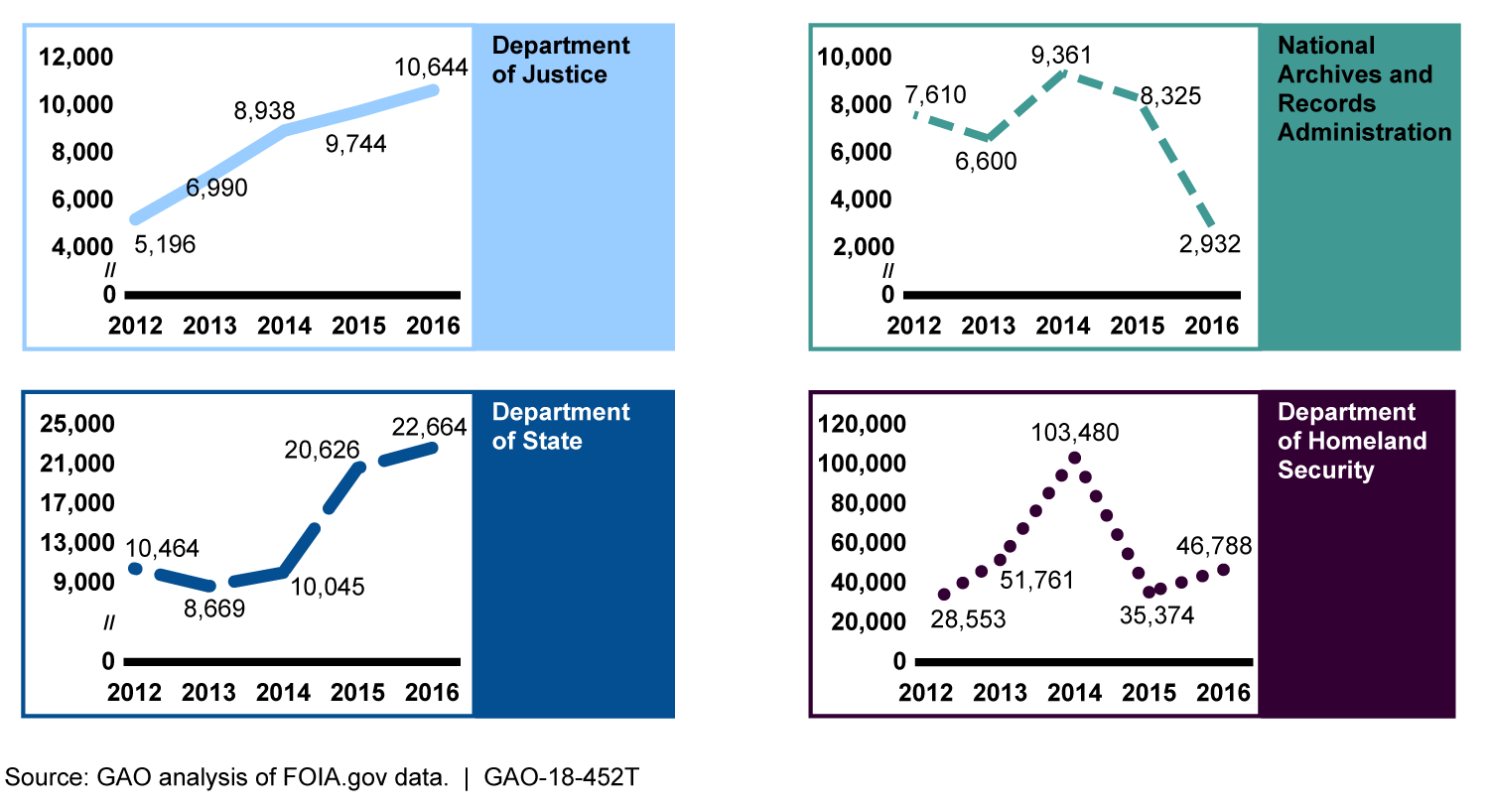Freedom of Information Act: Agencies Are Implementing Requirements but Need to Take Additional Actions
Highlights
What GAO Found
In its draft report, GAO determined that all 18 selected agencies had implemented three of six Freedom of Information Act (FOIA) requirements reviewed. Specifically, all agencies had updated response letters to inform requesters of the right to seek assistance from FOIA public liaisons, implemented request tracking systems, and provided training to FOIA personnel. For the three additional requirements, 15 agencies had provided online access to government information, such as frequently requested records, 12 agencies had designated chief FOIA officers, and 5 agencies had published and updated their FOIA regulations to inform the public of their operations. Until these agencies address all of the requirements, they increase the risk that the public will lack information that ensures transparency and accountability in government operations.
The 18 selected agencies had backlogs of varying sizes, with 4 agencies having backlogs of 1,000 or more requests during fiscal years 2012 through 2016. These 4 agencies reported using best practices identified by the Department of Justice, such as routinely reviewing metrics, as well as other methods, to help reduce their backlogs. Nevertheless, these agencies' backlogs fluctuated over the 5-year period (see figure). The 4 agencies with the largest backlogs attributed challenges in reducing their backlogs to factors such as increases in the number and complexity of FOIA requests. However, these agencies lacked plans that described how they intend to implement best practices to reduce backlogs. Until agencies develop such plans, they will likely continue to struggle to reduce backlogs to a manageable level.
Number of Backlogged FOIA Requests for Selected Agencies, Fiscal Years 2012-2016

Agencies used various types of statutory exemptions to withhold information when processing FOIA requests during fiscal years 2010 to 2016. The majority of these fell into the following categories: personally identifiable information, national security, law enforcement and investigations, and confidential and commercial business information.
Why GAO Did This Study
FOIA requires federal agencies to provide the public with access to government records and information based on the principles of openness and accountability in government. Each year, individuals and entities file hundreds of thousands of FOIA requests for information on numerous topics that contribute to the understanding of government actions. In the last 9 fiscal years, federal agencies subject to FOIA have received about 6 million requests.
GAO was asked to summarize its draft report on federal agencies' compliance with FOIA requirements. GAO's objectives, among others, were to (1) determine the extent to which agencies have implemented selected FOIA requirements; (2) describe the methods established by agencies to reduce backlogged requests and the effectiveness of those methods; and (3) identify any statutory exemptions that have been used by agencies as the basis for withholding (redacting) information from requesters.
To do so, GAO selected 18 agencies based on their size and other factors and assessed their policies against six FOIA requirements. GAO also reviewed the agencies' backlog reduction plans and developed a catalog of statutes that agencies have used to withhold information.
Recommendations
GAO's draft report contains recommendations to selected agencies to post records online, designate chief FOIA officers, update regulations consistent with requirements, and develop plans to reduce backlogs.
